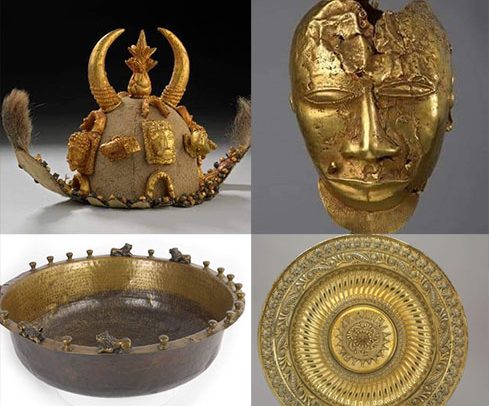
In the busy streets of Ghana, a silent epidemic is tightening its deadly grip on the nation’s youth. Red 225, a potent opioid painkiller intended for severe medical conditions, has morphed into a street drug fueling a devastating addiction crisis.
From the chaotic streets of Accra to the ghettos of Kumasi and other areas, this drug is not just a substance, it’s becoming a way of life, eroding the soul of a generation.

A Descent into Addiction at Kwame Nkrumah Circle.
My investigation led me to Odawna, the epicenter of Accra’s Kwame Nkrumah Circle, where the trade in Red 225 thrives unchecked. Here, the drug flows freely, its allure drowning out warnings from authorities.

The streets pulse with a different rhythm at night, a market of desperation where young men, surviving on menial jobs, spend their earnings chasing the next high. Many sleep under open skies, trapped in a relentless cycle of addiction and survival.

I met Safia Azumi Faustina, a 29-year-old mother whose trembling body and vacant eyes told a story of surrender. For as little as 20 Ghana cedis, she offered herself for sex, her life unraveling under the weight of Red 225.

“My parents never gave me reason to believe in second chances,” she said, her voice sharp yet fragile. “Sometimes I bleed, and when it gets bad, I take some pills to feel relieved.” A mother to a 9-year-old boy, Safia’s fleeting moments of joy are overshadowed by the drug’s grip. A jagged scar on her shoulder serves as a stark reminder of the collapse she survived—barely.

The Drug’s Deadly Allure
Red 225, a 225mg dose of tramadol, was never meant for recreational use. Yet, on these streets, it reigns supreme. Heyford Kwesi Bosompeng, a 40-year-old who has battled addiction for over two decades, explained its rise.

“That’s what the boys are heavily into now,” he said. “Those who smoke weed are lying low because of police arrests. They used to hide to take the pills, but now you see them openly on the streets. They’re not sick, yet they’re constantly on medication.”

To understand the trade, I asked Heyford to buy a pill for me. Dealers, wary of unfamiliar faces, refused to sell directly, knowing their actions are illegal. For GHS10, Heyford returned with two pills, purchased behind the Neoplan station at Kwame Nkrumah Circle. The transaction was swift, routine, and chillingly normal.

Nearby, 26-year-old Kwabeba Osei admitted to using Red to “relax” after work or enhance intimacy with his wife. “It makes her happy,” he said, acknowledging his addiction but feeling powerless to stop.

My hidden cameras captured the brisk trade at the VIP station in Circle, where pills change hands with alarming ease. This is one of Ghana’s largest drug markets, and Red 225 is its king.

The Crisis Spreads to Kumasi
The epidemic isn’t confined to Accra. In Kumasi’s Asawase, I met Philip David, a 31-year-old tricycle operator who has used Red for nearly five years.
Each morning, he visits the local ghetto to stock up, keeping pills close to “boost” his strength for the day.

“I took some last night, and it works for a long time,” he said. “For many girls and boys, Red has become like a sex pill. I’m addicted. I want to stop, but I still find myself taking it.”

In Aboabo Royal, a slum notorious for lawlessness, young men dissolve Red into energy drinks, believing it amplifies the high. A community leader admitted to trying the drug but stopped after witnessing its dangers.
“ You see addicts by the roadside, hit by cars before they realize what’s happened,” he said. Another youth, reluctant to admit his habit, claimed he only takes it “sometimes” for scrap work, his master disapproving.
You see addicts by the roadside, hit by cars before they realize what’s happened,” he said. Another youth, reluctant to admit his habit, claimed he only takes it “sometimes” for scrap work, his master disapproving.

In Ash-Town, the youth are shadows of themselves, defending Red as a source of energy and confidence. “The drug helps us think and work hard,” one said defiantly. “If they stop it, we’ll take guns and rob in broad daylight. Red calms me.” Another added, “I take it like medicine. If I don’t, I won’t feel active all day.”

A Nation Under Siege
Despite laws banning Red 225, enforcement is weak. Raids and arrests occur, but the trade persists. Education about the drug’s dangers is nearly nonexistent. Health professionals warn of dire consequences: addiction, vomiting, confusion, hypertension, hallucinations, and even death.

Delese Mimi Darko, CEO of Ghana’s Food and Drugs Authority, noted, “We’ve seized and destroyed samples, but they still sell them in strips.” An executive instrument bans importing tramadol above 100mg, yet higher doses infiltrate the market.

In Krofrom, dubbed “Colombia” by locals, an abandoned structure shelters dozens of users. Emmanuel Asamuvong, a 38-year-old father of three, lives with the weight of his choices. “I ignored warnings,” he said, blaming his addiction for his mother’s death.

“This isn’t how I used to look. Even children disrespect us now.” His sister, a hairstylist, grapples with shame. “I love him, but I can’t help him,” she said, praying for support she cannot afford.
Kofi Debrah, once a commercial driver, now repairs umbrellas under the scorching sun. At 2:15 p.m., he hadn’t eaten, prioritizing drugs over food. “When I look at my peers, I feel like someone who is mad, knowing I’m not,” he said, clinging to hope for recovery. Daniel Adu, another addict, lost his family to his addiction, the cost of rehab an insurmountable barrier.

A Generation at Risk
Ghana is no stranger to drug abuse, but the Red 225 crisis is unprecedented in its scale and devastation.
A 2020 Narcotics Control Commission survey revealed that 86.4% of rehab patients are aged 15–44, with the 30–34 age group comprising 26.5%. Substance abuse fuels theft, violence, and sexual exploitation, tearing communities apart.

The Ministry of Youth Development and Empowerment warns of a looming workforce deficit if the crisis isn’t addressed.
“This threat is real,” The Minister said. “Our tertiary institutions are becoming epicenters. We must enforce measures to stop the drug from entering the market.” Yet, with under-resourced rehab centers and weak enforcement, the path forward is uncertain.

A Call to Action
Ghana stands at a crossroads. Red 225 is not just a drug, it’s a predator, preying on the vulnerable and robbing a nation of its future.
Families watch helplessly as loved ones slip away, some already lost to the drug’s deadly toll. The time for half-measures is over. Without urgent, decisive action, stronger enforcement, widespread education, and accessible rehabilitation, an entire generation risks being swept away.
“The State shall take all necessary action to ensure that the national economy is managed in such a manner as to maximize the rate of economic development and to secure the maximum welfare, freedom and happiness of every person in Ghana and to provide adequate means of livelihood and suitable employment and public assistance to the needy,” Chapter 6, Article 36 (1) of the 1992 Constitution.
The time to act is now.
The post Hooked on Red: Ghana’s Opioid nightmare first appeared on 3News.
Read Full Story


















Facebook
Twitter
Pinterest
Instagram
Google+
YouTube
LinkedIn
RSS